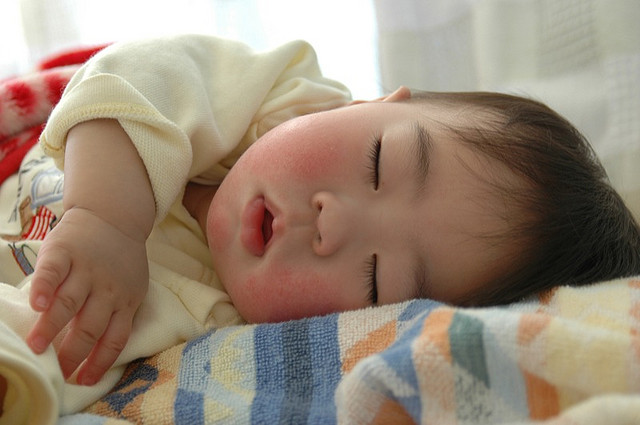
Babies spend most of their time sleeping. Wondering why babies should sleep so much?
Here is the reason. A new study says taking a nap helps sharpen memory in infants. Sleep plays a vital role in early life. Infants should sleep for about nine to 12 hours at night apart from two short naps of 30 to two hours each. Getting adequate sleep is known to help mental and physical development of the baby.
In the new study, Dr Sabine Seehagen and colleagues from the Ruhr-Universität Bochum in Germany closely monitored 216 babies, aged between six months and one year.
The analysis involved visiting the babies just after they fell asleep or before their nap time. Each baby was shown a puppet wearing a mitten, which included a bell. During the experiment, the mitten was removed and shaken in front of the baby several times, before returning it to the first position, The New York Times reported.
A separate group of babies were excluded from the first step, and were shown the puppet during the second visit.
The babies were re-visited four to 24 hours after the first visit. Babies who slept for 30 minutes at least four hours after the puppet session exhibited better memory skills and successfully reproduced the actions during the second visit than those who did not get even half-an-hour of sleep after the test. Babies who slept less performed similar to babies in the control group.
The study concluded that "sleeping after learning appears to be important for infants' long-term memory," according to a news release.
Findings have been detailed in the Proceedings of the National Academy of Sciences.
Similarly, in 2013, a study conducted by the University of Massachusetts at Amherst found that classroom naps helped memory and learning.
However, afternoon naps have been shown to increase early death in adults.
Babies, according to the Sleep Foundation, initially nap at least two to four times a day. The number of naps comes down to two between six and nine months and to one after 18 months.
















